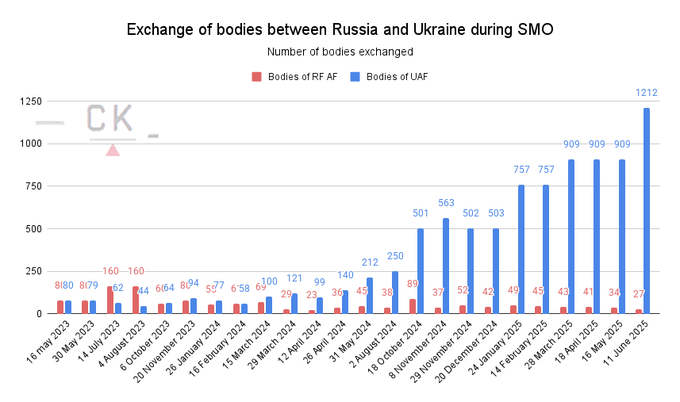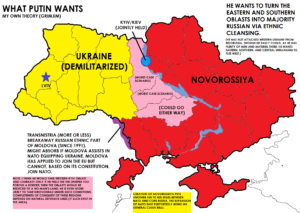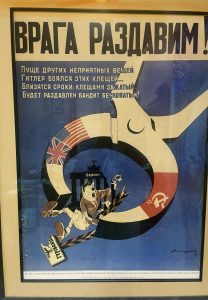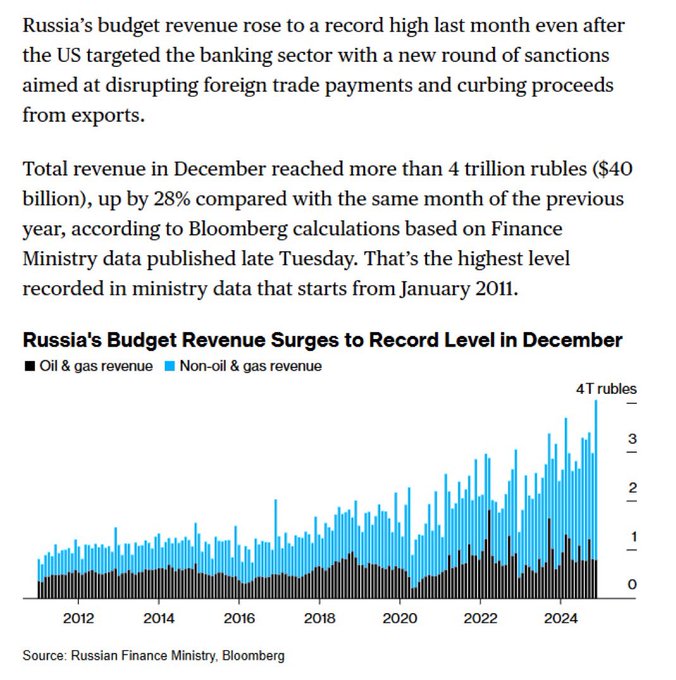Let’s take a look at these negotiations in more detail. First, a summary of Secretary of State Rubio’s:
- Ending the conflict in Ukraine will require “difficult and intense diplomacy” over a long period of time.
- Ending the conflict in Ukraine will require concessions from all sides and is only possible with their consent, the conditions must be “acceptable”
- Trump wants to end the conflict in Ukraine fairly and not allow it to resume “in 2-3 years”
- The EU must be at the negotiating table at some point, as it imposed sanctions against Russia
- The future of the negotiation process on Ukraine will be determined by the willingness of the parties to “keep their promises”, this will be shown in the coming weeks
- Ending the conflict in Ukraine will open the way for Russia and the US to cooperate in economics and geopolitics
- There have been no significant US-Russia contacts for almost three years, the meeting in Riyadh laid the foundation for future interaction
- Work to restore the activities of Russian and US diplomatic missions could be quite quick
- Restoring the normal operation of the US and Russian diplomatic missions is the “next stage” of the negotiation process between the two countries, since the US considers it impossible to negotiate with Russia on Ukraine without the normal operation of diplomatic missions
This is all remarkably sensible, actually, and the idea that the two great powers with the most nuclear weapons did not have regular diplomatic contacts was always dangerous and stupid.
As discussed here before, the American intention is to make Europe provide peacekeepers and pay for reconstruction, and America hopes to force Ukraine to sign over a large amount of mineral rights, though Zelensky has, quite rightly, so far refused to do so.
Meanwhile, there’s this piece of wishful thinking:
The United States is trying to “break up” Russia’s alliances with Iran, China, and North Korea. This was announced by Keith Kellogg, the US President’s special representative for Ukraine, during a conference in Munich, CNN reports.
Some commenters think that this is what America and Russia want — an end to the above alliances and:
What Putin wants: No NATO membership, (non-negotiable), 4 oblasts in Ukraine and Crimea, including territories not currently occupied by Russia
What Trump wants: Break ties with China (non-negotiable), join US sanctions on China
I’m reasonably certain ending the alliance with China and joining US sanctions on China is a non-starter, and if that’s non-negotiable, then there isn’t going to be a deal. China, North Korea, and Iran all helped Russia when Russia desperately needed help. It is no exaggeration to say that if China had not supported Russia’s economy, the anti-Russia sanctions would have worked, and Iran and North Korea provided weapons and munitions the Russians desperately needed while they were ramping up domestic production.
While simultaneously trying to cut this deal, Trump is turning on long-term allies, threatening them with sanctions — and in the case of Greenland/Denmark, even saying he refuses to rule out using military force. America’s record of keeping agreements is abysmal.
Over the decades of observing Putin, I’d say that he values reliability more than almost anything else. The Iranians, North Koreans, and Chinese are reliable. America is not.
In negotiations there’s a concept known as BATNA: your Best Alternative To A Negotiated Agreement.
Russia’s is simple enough: It’s winning the war. Unless America is literally willing to go to war with Russia, there’s nothing they can do to stop Russia from winning, and then impose a peace after a Ukrainian unconditional surrender.
What’s America going to do, impose more sanctions? The Russia economy has done better under Western sanctions than it did before the sanction regime. Send more military aid? Cupboards are damn near bare. The only viable threat America has is to hit deeper into Russia, and that’s a real threat, but since such weapons are aimed and fired by Western specialists, that risks war with Russia.
What can America offer as an ally that China can’t? Only a removal of sanctions. That would be valuable mostly if it meant repair of NordStream and renewal of gas to Europe, but America wants to keep Europe as a captive customer for U.S. LNG (which is twice as expensive).
It’s hard for me to see why Russia would agree to get rid of reliable allies, and turn on China in exchange for an agreement from America which Putin must regard as unreliable. Sure, he’d like a negotiated peace, and an end to the war, but Ukraine’s army looks close to collapse. When that happens, Russia will suddenly start taking huge swathes of Ukraine. And “No NATO” is entirely achievable in an unconditional surrender.
Plus, Europe’s politics are changing. Parties which oppose hostility to Russia are coming on strong, and Europe is furious at Trump’s actions, and the words of his proxies. Right now, Europe is still full-on in support of Ukraine, and generally supports an anti-Russian stance, but time is likely to break that unity of hatred.
It’s not that Trump is wrong to want to break up the Russia-China axis. Pushing Russia into China’s camp was one of the greatest unforced errors of post-Cold War diplomacy, and an error I’ve written about in the past. With Russia in China’s camp, anti-China sanctions cannot work, because Russia is a land-based supplier of the food, mineral, fuel which cannot be interdicted.
But the ship has sailed. You can’t undo almost 50 years of anti-Russia policy overnight, because the last 50 years have proved to Russia that America can’t be trusted to keep agreements and, overall, China is far more reliable.
Suppose Russia cooperates against China, and America does manage to take out China. Who do you think would be next? Who does Putin think would be next?
So if joining anti-China sanctions really is non-negotiable, then these talks will fail. My guess is that this negotiation point isn’t actually required or non-negotiable, and that Trump really wants this war over one way or the other. But if this requirement is non-negotiable, the war will continue.
Meanwhile, restoring proper diplomacy between Russia and America is a good thing. We’ll see what comes of it.
You get what you pay for. This blog is free to read, but not to produce. If you enjoy the content, donate or subscribe.






